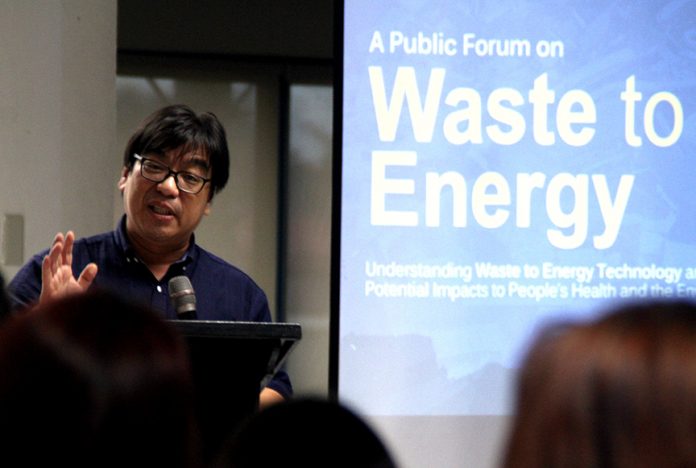An environmental watchdog on Monday appealed to the city government to reject the Waste-to-Energy plant facility proposed for the city recently.
The environmental group, EcoWaste Coalition, has asked the lawmakers to reject the proposed facility because the group considers it as an “incinerator.”
Dr. Jorge Emmanuel, former chief technical advisor of the United Nations Development Program on global environment waste projects said that the waste-to-energy facility would create extremely toxic substances that will stay in the environment for hundreds of years.
“Lawmakers must consider the long-term impacts of the facility on public health and the environment,” he added as all technologies related to waste-to-energy produces the most toxic substances known to science.
Von Hernandez of EcoWaste Coalition, for his part, said that the proposal of Waste-To-Energy treatment promotes burning of otherwise valuable resources in fundamental conflict with our Clean Air and Ecological Solid Waste Management Acts.
“Burning waste directly competes with smaller industries and communities engaged in recycling, composting and waste collection, undermining current government efforts to protect the environment,” he said.
Meanwhile, Mylai Santos, EcoTeneo director said that there are no shortcuts towards ecological waste management.
“It is better to be cautious in adopting technology and processes that are inappropriate in the local context and inconsistent with the country’s environmental laws,” she said.
The local government hinted that that they did not sign the agreement signed with a foreign investor foe the construction of waste-to-energy facility because city would not be able to meet the requirement because the city’s waste segregation ordinance
However, several councilors are still interested in the waste-to-energy proposal and wants to know see how similar plants outside the city operate and determine their viability in Davao City.
But EcoTeneo on its part said the city government should demand detailed feasibility studies on the impact of the project on the environment before agreeing to it.
“The city might sacrifice more than benefit from these projects,” said Santos.







